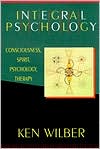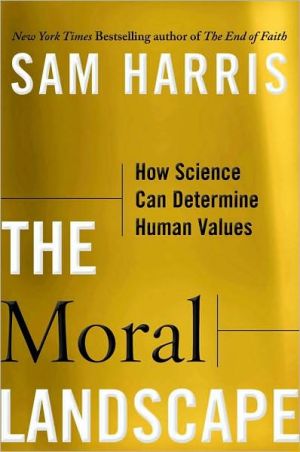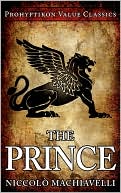Integral Psychology
The goal of an "integral psychology" is to honor and embrace every legitimate aspect of human consciousness under one roof. This book presents one of the first truly integrative models of consciousness, psychology, and therapy. Drawing on hundreds of sources—Eastern and Western, ancient and modern—Wilber creates a psychological model that includes waves of development, streams of development, states of consciousness, and the self, and follows the course of each from subconscious to...
Search in google:
The goal of an "integral psychology" is to honor and embrace every legitimate aspect of human consciousness under one roof. This book presents one of the first truly integrative models of consciousness, psychology, and therapy. Drawing on hundreds of sources—Eastern and Western, ancient and modern—Wilber creates a psychological model that includes waves of development, streams of development, states of consciousness, and the self, and follows the course of each from subconscious to self-conscious to superconscious. Included in the book are charts correlating over a hundred psychological and spiritual schools from around the world, including Kabbalah, Vedanta, Plotinus, Teresa of Ávila, Aurobindo, Theosophy, and modern theorists such as Jean Piaget, Erik Erikson, Jane Loevinger, Lawrence Kohlberg, Carol Gilligan, Erich Neumann, and Jean Gebser. Integral Psychology is Wilber's most ambitious psychological system to date and is already being called a landmark study in human development. Publishers Weekly In this dense text, philosopher Wilber (The Eye of the Spirit) aims to reconstruct a place for spiritual consciousness in Western developmental psychology. Describing prevailing psychological theories as inhabiting a "flatland" where only "the world of matter and energy, empirically investigated by human senses and their tools is real," Wilber surveys their history. He looks both at the early modern era, when scientific materialists banished the philosophical investigation of an individual's interior life from science, and at the work of 200 ancient, medieval and modern philosophers, for whom spiritual concerns were paramount. They all helped shape the history of modern developmental psychology, he argues. Wilber aims to produce a two-volume textbook from his research; this effort is a condensed outline of the ideas he plans to detail. But even this shorter text contains 20 pages of charts, 68 pages of endnotes and a lengthy explanation of his four-quadrant model (designed to integrate consciousness, spirit and therapy with the psychological development of the individual in relationship to the material world)--all of which makes for some hefty reading. Additionally, because he's writing for a scholarly audience, Wilber employs terminology that may be challenging for the lay reader, although he does manage, occasionally, to clarify complex themes with simple analogies. Mixing scientific inquiry with spiritual concerns, this book should speak most clearly to those looking for a basis in Western science to validate their spiritual quest. Illustrations. (Apr.) Copyright 2000 Cahners Business Information.\|
Note to the Reader: A Daylight ViewPt. 1Ground: The Foundation11The Basic Levels or Waves52The Developmental Lines or Streams283The Self334The Self-Related Streams38Pt. 2Path: From Premodern to Modern575What Is Modernity?596To Integrate Premodern and Modern667Some Important Modern Pioneers74Pt. 3Fruition: An Integral Model878The Archeology of Spirit899Some Important Developmental Streams11510Spirituality: Stages or Not?12911Is There a Childhood Spirituality?13912Sociocultural Evolution14313From Modernity to Postmodernity15814The 1-2-3 of Consciousness Studies17415The Integral Embrace188Charts195Notes219Index289
\ Publishers Weekly\ - Publisher's Weekly\ In this dense text, philosopher Wilber (The Eye of the Spirit) aims to reconstruct a place for spiritual consciousness in Western developmental psychology. Describing prevailing psychological theories as inhabiting a "flatland" where only "the world of matter and energy, empirically investigated by human senses and their tools is real," Wilber surveys their history. He looks both at the early modern era, when scientific materialists banished the philosophical investigation of an individual's interior life from science, and at the work of 200 ancient, medieval and modern philosophers, for whom spiritual concerns were paramount. They all helped shape the history of modern developmental psychology, he argues. Wilber aims to produce a two-volume textbook from his research; this effort is a condensed outline of the ideas he plans to detail. But even this shorter text contains 20 pages of charts, 68 pages of endnotes and a lengthy explanation of his four-quadrant model (designed to integrate consciousness, spirit and therapy with the psychological development of the individual in relationship to the material world)--all of which makes for some hefty reading. Additionally, because he's writing for a scholarly audience, Wilber employs terminology that may be challenging for the lay reader, although he does manage, occasionally, to clarify complex themes with simple analogies. Mixing scientific inquiry with spiritual concerns, this book should speak most clearly to those looking for a basis in Western science to validate their spiritual quest. Illustrations. (Apr.) Copyright 2000 Cahners Business Information.\|\ \








